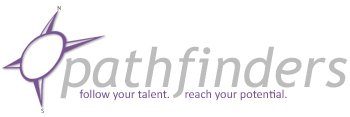Wall Street Finance to Prosthetics
Career Change from Wall Street to Prosthetics
October 14, 2012
Hi Anthony —
Since we last spoke, I took the GRE, my wife and I had a baby boy, and I enrolled in night school.
Currently I’m taking Anatomy and Physiology. Mixed in with all that was some valuable shadowing at prosthetic clinics in the area which helped me realize that prosthetics was a good fit and a visit to the graduate school I hope to get into in Dallas.
Interestingly, I’m finding I’m naturally pretty good at anatomy and not surprisingly I find it very interesting which makes the transition much more doable. So I guess, after years in the making, I’m actually making the career transition.
It’s all very exciting and I’ve got to thank you for your invaluable help in all this. I’m lucky to have a very supportive spouse, and boss as well.
I just wanted to let you know that I used a lot of the things that we discovered and discussed to commnicate my personal vision. It was really empowering to be able to write so specifically about why I’m pursuing orthotics and prosthetics. The grad program has since requested an interview, which has us really excited.
Thanks again,
Kris
30-something
Backstory: Career Change from Wall Street to Prosthetics
————— Kris’ Career Change Program started in October 2010 ———————
At the time we met, Kris was 29 years old and very unhappy with his Wall Street career. Eager to make a big change, the career design process was a major turning point in his life; he discovered the underlying reasons as to why he was out of his element in the finance world. Although he is exceptionally bright, he has a different mix of abilities that are greatly underappreciated in the competitive, tough-minded culture on the Street.
Rather than quit his job, he worked out a special arrangement with his colleagues to stage his career change from his current job. He had the courage to explain that he was not suited for financial career path and his colleagues we’re not only pleased to hear that he was pursuing a new path, they offered to have him stay on and continue to mainly do the part of his job that he’s best at — customer-liaison engagements (although he didn’t enjoy the content of his work, he brought the rare listening talent that turned out to be quite appreciated by his boss).
Kris has a highly observant mind. His natural strengths of sensory perception, empathy, and a heightened ability to quickly diagnose complex 3-dimensional problems are the key natural talents that make for brilliant doctors. While some may debate whether great healers are born, it is clear that having natural ability for spatial problem solving and a nurturing personality is a distinct advantage in medical fields.
His fascination by how the mechanics of the human anatomy work was a big clue that suddenly had some teeth. His blueprint for a cool career began to take shape through a clever combination of his strongest abilities: to listen empathetically to others, physical athleticism and a curoisty for how to design optimal products (he was also considering industrial design to create high-end bikes, as well as the culinary arts).
When all of his talents and traits are operating in concert, especially in a one-to-one consultative situation, he achieves the equivalent of a runner’s high. He had a breakthrough moment, he found his zone of excellence. The careerfinder talent profile gave him a language and awareness for his cognitive thinking process. It became suddenly obvious that he goes into a flow state while observing people in motion, noticing the subtle differences in their height, build, facial expressions and body-motion mechanics. In this state of mind he’s just “being”, not doing.
Once he began to explore prosthetics, the light bulb came on and his career vision suddenly became real and doable.

